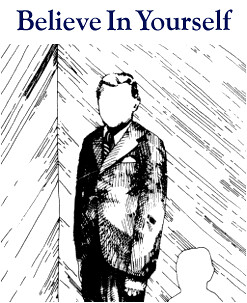| View previous topic :: View next topic |
| Author |
Message |
Mosley
Joined: 15 Jan 2003
|
 Posted: Tue Aug 21, 2007 9:43 pm Post subject: To Be or not to Be... a Q for Woland et al. Posted: Tue Aug 21, 2007 9:43 pm Post subject: To Be or not to Be... a Q for Woland et al. |
 |
|
| "These days, a lot of people seem to have complaints and dissatisfaction, whether they be big or small." This is from a second year HS text. Apparently, some students think(because of the structure) that a modal like "should" is needed after "they". The point of contention is that "be" isn't conjugated to "are". A Kteacher asked me about this and I think I did a p*ss poor job of explaining why the most basic of verbs need not be changed(at least not to me). Any ideas/thoughts? |
|
| Back to top |
|
 |
faster

Joined: 03 Sep 2006
|
 Posted: Tue Aug 21, 2007 9:54 pm Post subject: Posted: Tue Aug 21, 2007 9:54 pm Post subject: |
 |
|
I believe it is a conditional (subjunctive), like we use with order/suggestion words:
The coach required that he shave his sideburns.
Reminds me of a little recursive statement, I think from Douglas Hofstadter's Metamagical Themas:
If there was no subjunctive in English, this sentence would be grammatically correct |
|
| Back to top |
|
 |
robot

Joined: 07 Mar 2006
|
 Posted: Tue Aug 21, 2007 9:59 pm Post subject: Posted: Tue Aug 21, 2007 9:59 pm Post subject: |
 |
|
It's subjunctive.
Easiest to just tell your students no, should won't work here, cuz it's a collocation [whether (sth) be...].
It's used when talking about more than one possibility.
Unless they're pretty advanced, it likely won't be too useful for them to know, as [whether + be] is of a more formal register and also kinda archaic, like a lot of other subjunctive constructions. |
|
| Back to top |
|
 |
Mosley
Joined: 15 Jan 2003
|
 Posted: Tue Aug 21, 2007 10:27 pm Post subject: Posted: Tue Aug 21, 2007 10:27 pm Post subject: |
 |
|
| Thanks guys. Yeah, I never even thought of the subjunctive angle. I daresay, with the subjunctive becoming "archaic", the usage is unnecessarily abstruse for 16 year old Korean kids! |
|
| Back to top |
|
 |
|

